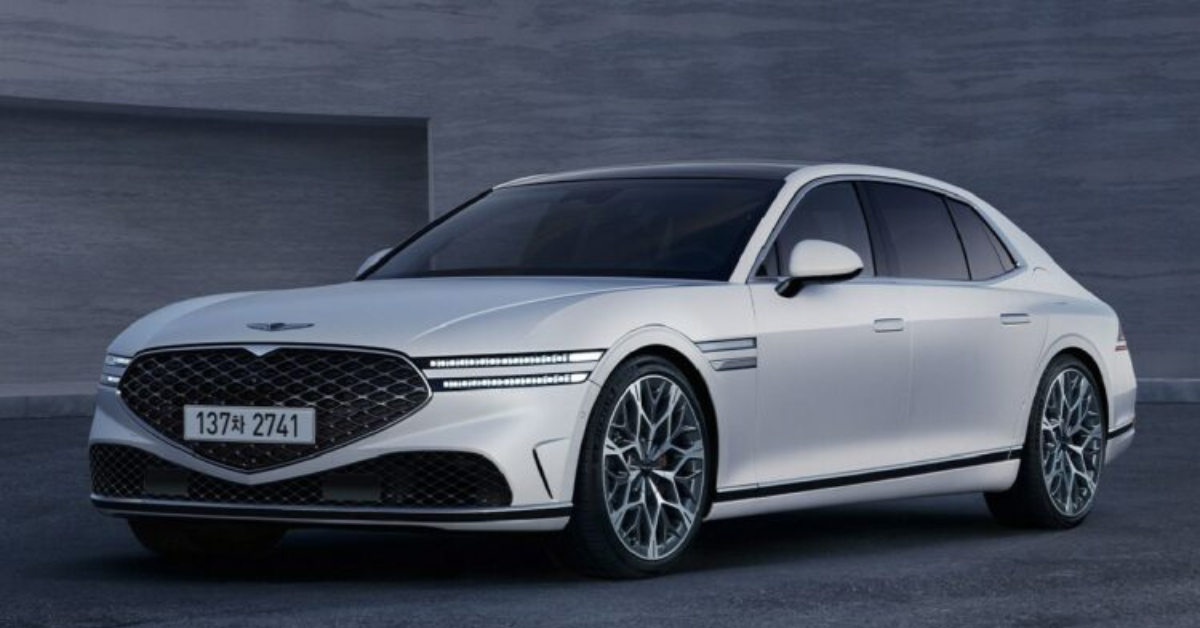Hyundai Motor India is reportedly evaluating the introduction of its premium luxury brand, Genesis, into the Indian market. This move, if confirmed, could mark a major turning point not just for Hyundai, but also for India’s luxury automobile sector. With competitors like Mercedes-Benz, BMW, and Audi already well-established, Hyundai’s Genesis brand promises a fresh take on luxury — one that blends premium quality, powerful performance, and tech-forward innovation at a relatively accessible price point.
In this blog, we’ll dive deep into what Genesis offers globally, how Hyundai might position it in India, expected models, potential pricing, and its possible impact on the Indian luxury car space.
🏁 What is Genesis?
Genesis is the luxury vehicle division of Hyundai Motor Company, headquartered in South Korea. Launched in 2015, the brand quickly gained international attention for offering stylish, high-performance vehicles with a focus on refinement, technology, and customer satisfaction. It’s Hyundai’s answer to brands like Lexus (Toyota’s luxury brand), Acura (Honda’s luxury brand), and Infiniti (Nissan’s luxury brand).
Genesis currently operates in markets such as the USA, South Korea, Canada, and parts of the Middle East and Europe. It is known for high-end sedans and SUVs, featuring plush interiors, robust engines, and advanced driver-assistance systems.
🚗 Why Genesis in India – Why Now?
India’s automobile industry has matured significantly over the last decade. With rising disposable incomes, aspirational young buyers, and a growing appetite for premium vehicles, the luxury car market has grown year-on-year.
Hyundai is already perceived as a semi-premium brand in India due to models like the Tucson, Alcazar, and even the Creta in its top trims. The step toward launching Genesis could help Hyundai enter a new league and compete with global luxury giants.
Here are some reasons Hyundai might bring Genesis to India now:
- Growing premium car market: With the Indian upper-middle class expanding, demand for luxury cars is on the rise.
- EV transformation: Genesis has already developed electric variants, which aligns well with India’s push for green mobility.
- Brand evolution: Hyundai wants to evolve beyond being seen as just a mass-market brand.
🔍 Expected Genesis Models for India
If launched, Genesis could begin with a few of its best-performing models globally. Likely candidates include:
1. Genesis G80 (Luxury Sedan)
A direct rival to the BMW 5 Series and Audi A6, the G80 offers a premium executive experience with features like:
- Luxurious leather interiors
- Rear seat comfort features
- Advanced safety suite
- Turbocharged petrol engines
2. Genesis GV70 (Luxury Compact SUV)
This SUV could be a game-changer in the ₹55–65 lakh segment, rivaling the likes of the Mercedes-Benz GLC and BMW X3.
- Bold design with LED matrix lights
- Panoramic sunroof
- All-wheel-drive
- Touchscreen tech with AI-based controls
3. Genesis Electrified G80 or GV60 (EV Options)
As Hyundai already sells the IONIQ 5 in India, Genesis electric models could tap into the luxury EV trend. With range figures crossing 500 km and ultra-fast charging support, these vehicles could compete with Audi e-tron and BMW iX.
💸 Possible Price Range
Pricing will be a key factor in Genesis’ success in India. Hyundai may opt for the Completely Built Unit (CBU) route initially, making the price steeper. However, with local assembly or CKD (Completely Knocked Down) operations, prices may become competitive.
- Entry luxury sedan (G70 or G80): ₹50–70 lakh
- Luxury SUVs (GV70 or GV80): ₹60–80 lakh
- EV models: ₹70 lakh and above
By positioning Genesis just below European rivals in terms of price but matching them in features and performance, Hyundai could strike the right balance.
🎯 Genesis vs Competitors in India
Here’s how Genesis might stack up against traditional luxury brands:
| Brand | Strengths | Genesis Advantage |
|---|---|---|
| Mercedes-Benz | Brand legacy, German engineering | Modern design, newer tech |
| BMW | Driving dynamics, performance | Plush interiors, better pricing |
| Audi | Technology, design | Competitive EV offerings |
| Lexus | Reliability, hybrid focus | More stylish, dynamic |
Genesis might attract buyers looking for exclusivity and futuristic design, especially those upgrading from top-end Hyundai models.
🌍 Challenges Ahead
Despite its potential, Hyundai must navigate some roadblocks:
- Brand Recognition: Genesis is largely unknown in India. Building a luxury image will take time and effort.
- Sales & Service Network: A dedicated, premium experience center network will be needed to match global standards.
- Import Duties: High import duties could push prices out of reach for many aspirational buyers, unless Hyundai commits to local assembly.
- Competition from EV Startups: With players like BYD and Tesla eyeing India, the luxury EV space will heat up quickly.
🔮 The Road Ahead
If Hyundai launches Genesis in India, it will not just bring more choice to luxury car buyers but also redefine perceptions about Korean automakers. The brand stands a strong chance if backed by proper strategy — including aggressive marketing, pricing, and customer experience initiatives.
Genesis can appeal to modern Indian customers who want to differentiate themselves from the typical European luxury car owner. With the right blend of design, tech, and after-sales support, Hyundai could very well carve out a niche and disrupt the traditional pecking order.
📝 Conclusion
The potential launch of Genesis in India is exciting news for auto enthusiasts and luxury car buyers alike. It reflects Hyundai’s long-term vision of becoming a dominant force across all price segments, from budget hatchbacks to full-blown luxury machines. Whether Genesis becomes the new symbol of modern luxury in India remains to be seen — but if Hyundai gets the launch right, it could spark a revolution in the premium auto space.
